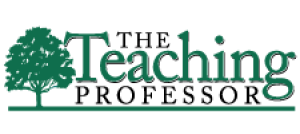Resources

Journal Issue.

Click Here for Book Review Abstract: The authors created this manual particularly for beginning instructors at the post-secondary level who have never had formal teacher training. They not only present the essentials of effective instruction that incorporates technology, but in doing so, review key principles and practices that have been shown to enhance students’ motivation to learn. The manual is a distillation of core information derived from both the authors’ own professional experience and the body of literature on teaching effectiveness, learning motivation, and the infusion of technology in post-secondary settings. They draw on their respective educational and research backgrounds that range from the elementary through to the college and university levels. (From the Publisher)
The Association of Religion Data Archives has a robust collection of teaching tools to take advantage of their exhaustive data on religion. The site includes lesson plans and modules, syllabi and assignments, definitions and key terms (for students), videos resources for class, and links to other sources.
The companion web site for the book “Team Writing,” including video of students doing group projects to illustrate advice in the book. The emphasis is on a group writing project, but it’s insights about group dynamics and how to organize are widely applicable. Available for free, with registration. 
UNC Charlotte’s Learning Center provides this helpful example of a gradation of activities for assessment (specific to “social studies”), from classify, define, demonstrate, to  order, predict, solve, and state a rule
A special report featuring 12 articles from Online Classroom examining methods of online assessment and common assessment mistakes to avoid.
Video. A video from The Harvard Graduate School of Education "Master Class" series. Eric Mazur (physics instructor) demonstrates how to conduct in-class activities without TAs.  
Focused on a biology classroom, but provides a helpful overview of the types of student resistance as well as hypotheses from other disciplines about the potential origins of student resistance. Also includes classroom strategies for preventing or addressing student resistance after it occurs. 
Podcast Series. A podcast exploring conversations of Critical Digital Pedagogy, listening for ways to empower students and champion learning. It’s hosted by Chris Friend from Saint Leo University. It’s the aural side of Hybrid Pedagogy—a digital journal of learning, teaching, and technology.
One of the chief tenets for a successful and engaging online course is the development of an effective system that provides ongoing student interaction. Short essay with concrete suggestions for creating, sustaining, and assessing students’ online threaded discussions.
Wabash Center Staff Contact
Sarah Farmer, Ph.D
Associate Director
Wabash Center
farmers@wabash.edu